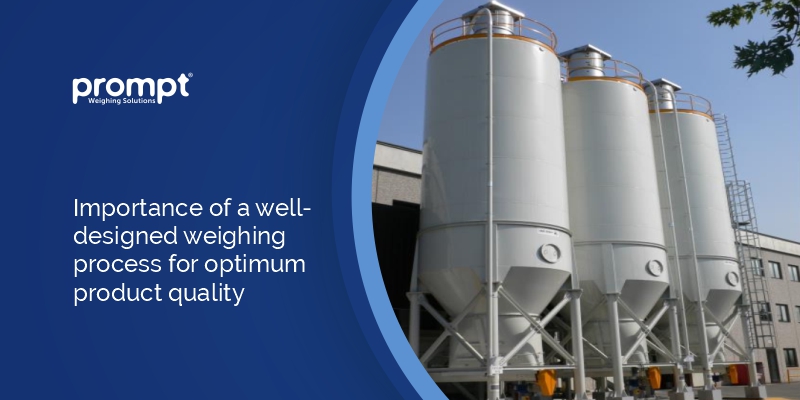Companies that offer products by weight know how crucial it is to have an accurate and consistent manufacturing process. Any discrepancies lead to the failure of quality inspections and the loss of precious manpower. It can have a direct impact on the profits of a company and also its reputation in the market.
If you have a business that needs to meet stringent standards of quality, the first step towards ensuring that is to have a reliable weighing process. Let us take a look at how you can improve your systems for better profits.
How to design an efficient weighing process
Products from the agro, chemical or fertiliser industry have sensitive weighing requirements. One of the best ways of going about improving your manufacturing process is to identify errors at different stages. It will prevent batches from having products with inconsistent weight. When the risks get assessed, and monitoring processes get evaluated, there is a scope to make appropriate modifications. This will ensure that finished products have the right weight.
When the focus is on ensuring the customers get products worth their weight, the manufacturing processes can get further simplified. Whether it is about formulating, batching or filling, an appropriate weighing process can ensure optimum results. Here are some essential factors to keep in mind when designing an efficient weighing process.
- Choose the right weighing equipment
It is essential to pick top-notch weighing equipment, to begin with. It can adhere to quality standards, reduce the chances of errors, and improve reliability and accuracy. Furthermore, you can also make adjustments to tolerance deviations in real-time. Based on your industry, you can select appropriate weighing equipment that also meets the benchmarks of risk analysis. If your manufacturing processes have low tolerance levels, you should opt for advanced weighing equipment.
- Reducing errors
Irrespective of the weighing equipment, there will always be some uncertainty and limitation. However, it is crucial to understand uncertainty and why it arises. When it comes to industries that have products with less weight, it becomes critical to ensure the deviation is as less as possible. Smaller samples will get affected more if the deviation is on the higher side. You can test the weighing equipment in an industrial environment to record deviations. This can help you make the necessary adjustments for better accuracy.
- Installation and calibration
One of the vital steps to ensuring the accuracy and reliability of product weight is to have the weighing equipment calibrated. Choosing equipment that offers better readability can be beneficial, but it is also essential to ensure the readings are accurate. Calibration helps in ensuring better accuracy after you identify the deviations by testing the weighing equipment in an industrial environment. When there are vital products with lower tolerance levels, you need to have a higher frequency of calibration and testing.
Picking a reliable equipment manufacturer
It is quite clear now that picking the right weighing equipment is important to meeting quality production standards, winning the customer trust and making a name for yourself. A reliable service provider like Prompt Equipment can help you at each stage of the weighing process. We have a range of bagging controller that can take care of all your needs, right from picking the best machinery to installation and calibration. You need expert assistance here to ensure you understand the nitty-gritty of weighing processes. To know more about our services, contact us today.

